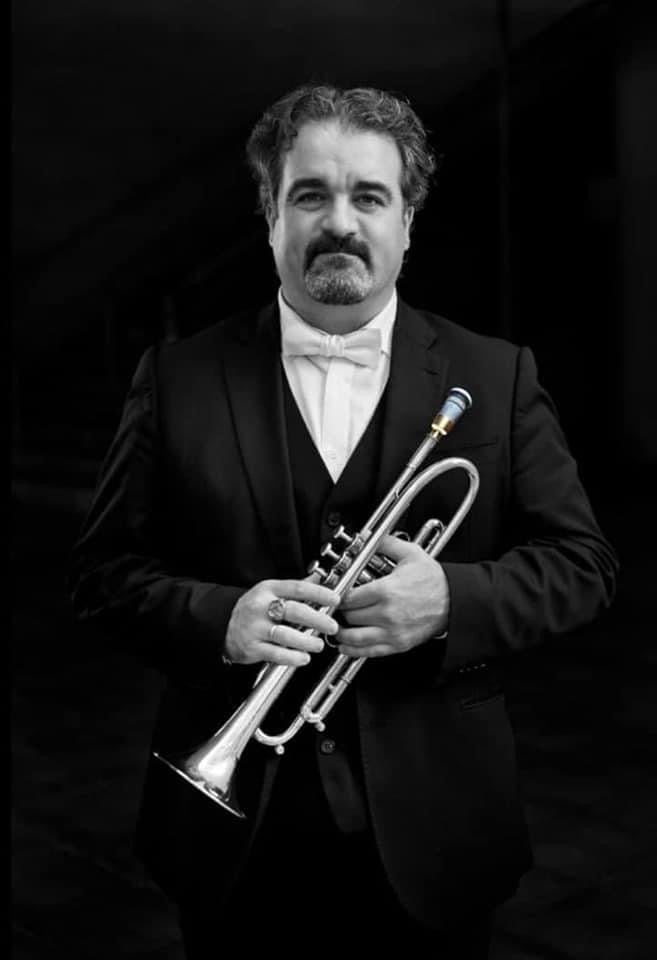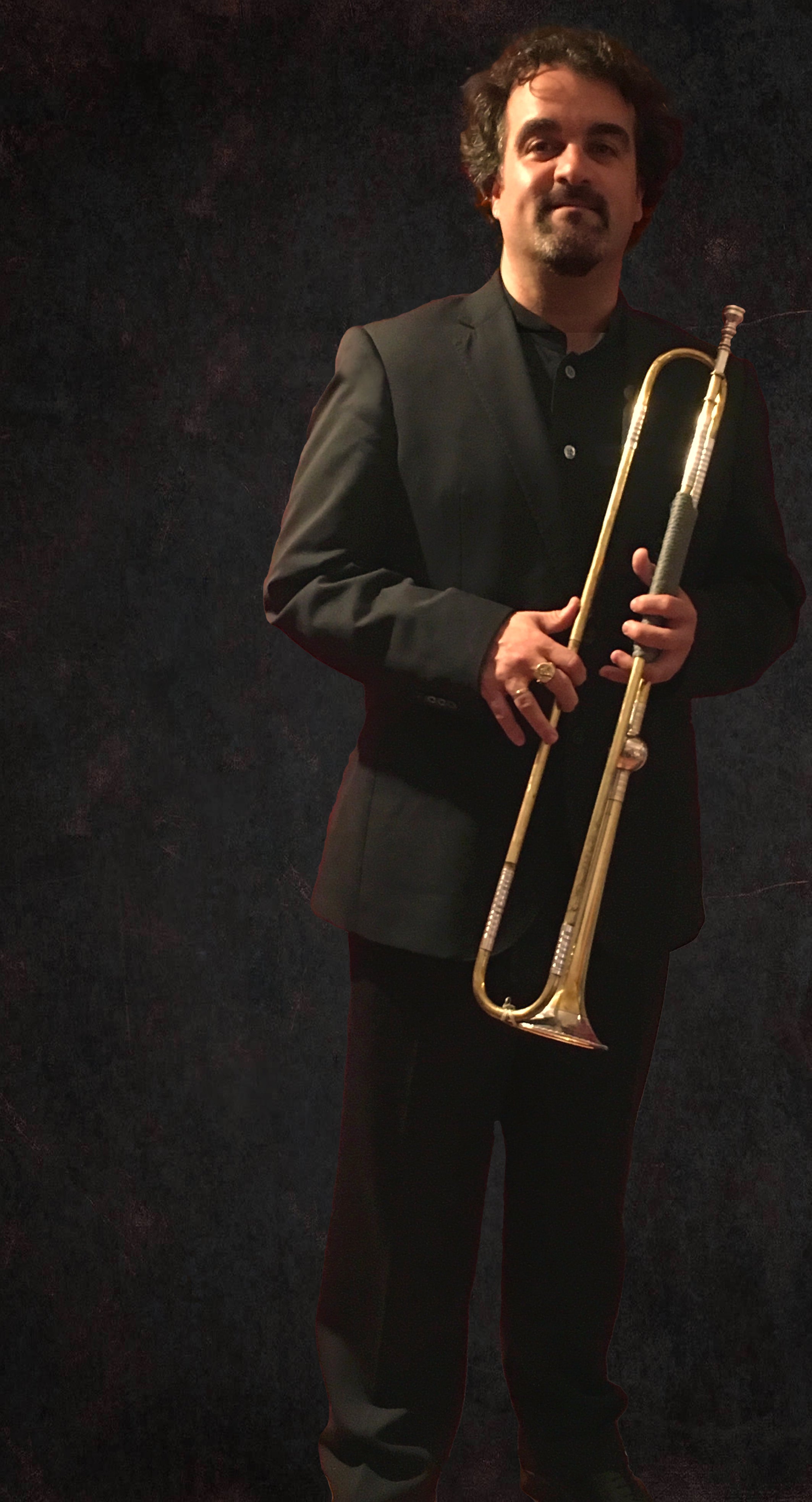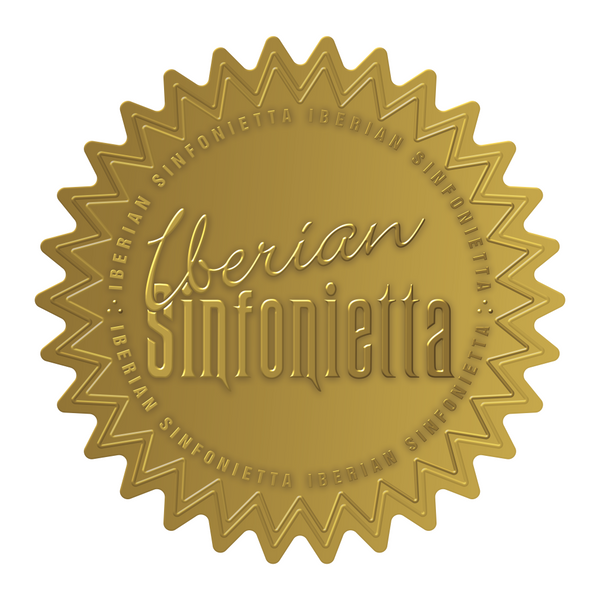
GETTING TO KNOW IBERIAN SINFONIETTA: ALEJANDRO GÓMEZ HURTADO
Dear public,
A few days ago, when we started with this section, Knowing Iberian Sinfonietta , we were able to learn about the work of the Concertmaster, Enrique Tudela . His work, as we could distinguish, is double, like every concertmaster. One at the violin level and another at the orchestra level.
Today we interview the soloist of the trumpet section, Alejandro Gómez Hurtado , taking advantage of the fact that the repertoire next Saturday, November 26, with Beethoven , Wagner and Dvorak , will require a large wind section.

Alejandro, you are the Head of the trumpet section of Iberian Sinfonietta. What sensations does it give you?
The feeling couldn't be better. It is very comfortable to work. Organization, planning, quality and a magnificent relationship with classmates and the teacher. At Iberian Sinfonietta it is possible not to confuse a relaxed atmosphere with one unbecoming of professionals. As for my feeling as a trumpet player, it's magnificent. I have been working for many years under the orders of maestro Juan Paulo Gómez and that creates a very good bond when it comes to facing my role.
We are gradually getting to know Iberian Sinfonietta through its
components, what is the relationship between your section and the rest of the winds? What about the wind and the rope?
Very good. It is an orchestra with a young average age but, at the same time, very experienced. Classic training or staff orchestras, being smaller, allow everything to be much more familiar and close. This allows groups not to be created, but practically all of us are a group.
As the soul brother of this project, the director Juan Paulo Gómez,
What do you think of these four years of journey?
Well, I believe that since the beginning of its journey, Iberian Sinfonietta has been in progressive progress with a very important qualitative development. Not only is it seen in the expansion of the staff for many of this season's concerts, but the orchestra, as an institution, is collaborating and committing to multiple activities and projects. That is to say, in addition to the essential and necessary work of cultural dissemination of classical music that is being done, we must add direct support to charities, promotion of young artists and talents, the creation of opportunities so that young soloists can show their potential. or the composers premiere their works, etc... As I always say, if we add to all this the self-financing that supports this idea or project, without aid of any kind, neither public nor private, it becomes a model of orchestral training of the s . XXI that works with maximum use of time and resources and without deviating from the only line that should interest us, that of spreading musical culture and offering a quality product.

How do you face the duality of being a soloist and alternating with concerts in the section as another partner in the orchestra?
With exceptions, all musicians, 99%, are formed as members of a section, a group, as part of a collective. Playing as a soloist is fundamental in our artistic evolution since it presents you with a series of characteristics and skills that we must develop and that when applying them to our line work (trumpet string, brass section, member of the orchestra, band , etc…) will give us a necessary and quality plus. Perhaps, in the case of wind instruments, it plays an even more prominent role, since in an orchestra the winds play 1-1 or solo roles. At the same time, chamber music is also highly recommended for musicians, regardless of whether their work can be carried out in a symphony orchestra, the musical and team concept that this work gives you will be fundamental in your daily life.
What moment are you at and is the orchestra there?
Personally, I find myself in a moment of contributing. I am immersed in different projects, with new repertoires or, at least, not the typical ones that are already so played. I am also closing performances with the key trumpet, for which Haydn composed the trumpet concerto, and which has never been seen in concert in Spain. Precisely, one of the interpretations of Haydn's concerto for trumpet and orchestra will be together with the Iberian Sinfonietta . This is not only a great opportunity for me but also shows the support that Iberian Sinfonietta gives for the “different”, for the not commonly established as long as, of course, it is accompanied by serious and professional work.
As for the orchestra, well, my perception is that it is unstoppable. There are no limits. Not only does it grow but it contributes. Not only does it increase its radius of action, but it already has a loyal audience, which, concert after concert, is “in crescendo.” My prognosis is more than positive and enriching.

Something that remains in our minds...
I would simply like to emphasize how necessary projects like Iberian Sinfonietta are, especially in times where no one is betting a dime on culture (everything has to be subsidized, especially in the “classical”), where it is difficult to find serious and stable formations with a artistic commitment and, something very important, that the musician's work is respected. The musician is an artist, but he is a worker. It is the only orchestra, at least in Spain, there is no doubt about that, where minutes later, hours at most, you receive payment for your work. To this we add that at all times and with Prussian advance notice you are informed of everything you need to know: schedules, dates, rehearsals, places, repertoires, distribution of music stands... For this person who is speaking to you, a clear example of good work made.
Thank you so much. We will see you next Saturday, November 26 at the Auditorio de la Paz in Fuengirola at 7:00 p.m. Good luck Master.
Jorge Rodríguez Morata
Pedagogical content coordinator
